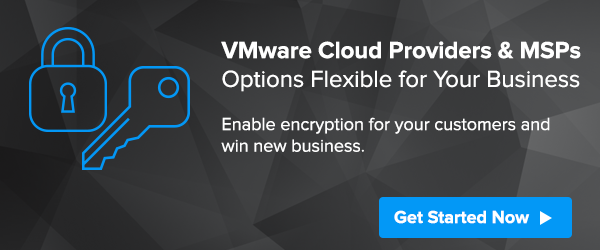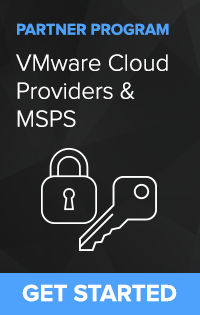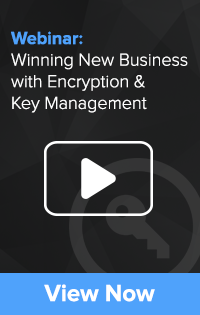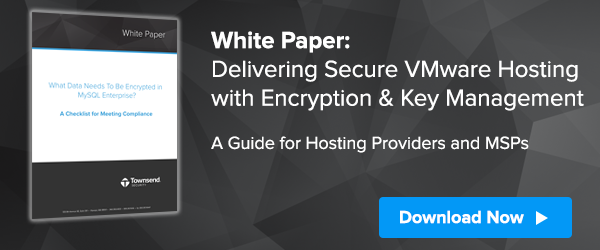This is the first in a series of blogs on the topic of Managed Service Providers (MSPs) and VMware encryption. They are meant to be read in order as each blog topic builds on the previous topics, and leads to the next.
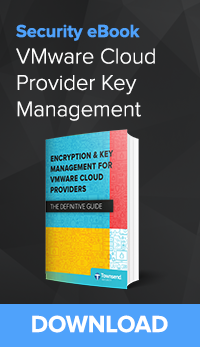 As an MSP, I hope you will take this journey with me about VMware encryption, the technical and business challenges you are facing, how Townsend Security solves these challenges, and the surprising business benefit waiting for you when you offer your customers encryption under your MSP service umbrella.
As an MSP, I hope you will take this journey with me about VMware encryption, the technical and business challenges you are facing, how Townsend Security solves these challenges, and the surprising business benefit waiting for you when you offer your customers encryption under your MSP service umbrella.
Here is the complete topic list:
- Why do MSP customers want encryption of their VMs and vSAN (this blog)
- What has VMware done to help with encryption security?
- What are the biggest obstacles to offering VMware encryption to customers?
- How does Townsend Security help an MSP overcome the KMS challenge?
- KMS for multiple vCenter clusters and nodes
- As an MSP how do I ensure high availability for encrypted VMs?
- How can an MSP use encryption security to improve revenues and profitability?
- Some common questions and how to get started with the Townsend Security MSP partner program
Customers of MSPs read almost daily about data breaches and ransomware attacks, and are rightly concerned about the security of their data under the control of the MSP. MSPs are usually the lead security provider for these customers and bring a great deal of expertise to the deployment of security solutions. Let’s explore the some of the concerns and motivations of the MSP end customer:
Regulations, regulations, and more regulations:
In addition to the fear of a data breach, customers are also concerned about regulations like the California Consumer Privacy Act (CCPA), the New York SHIELD Law, HIPAA, PCI-DSS, GDPR, and many others. No one wants to be subject to compliance actions and litigation due to a data breach. It is natural for a business or organization to turn to their MSP for assurance that their sensitive information is safe and security meets compliance regulations.
Business secrets and intellectual property:
In addition to the regulatory concerns, many small businesses and organizations are concerned about the compromise of business secrets and intellectual property. We now know that a number of state actors are aggressively attempting to steal this type of information. While business secrets and IP are a different category of sensitive information, the loss of this information can be devastating to a business or organization. It can take years to develop new ideas and move through the IP protection process. The compromise of this information can destroy the value of a company, and years of work by its employees and investors.
Reputational risk:
Lastly, the loss of any sensitive information can harm the reputation of an organization. If your value to an end customer involves managing aspects of their sensitive information, losing that information can cause irreparable damage to customer trust. We can all think of retailers, credit reporting agencies, government agencies, and many others who have had large data breaches. It affects consumer behavior and can exact a financial penalty for many years. No one wants to suffer reputational damage from a preventable data breach.
A data breach can be an existential event. According to Cybercrime Magazine about 60% of small companies close within 6 months of a data breach. This is an astoundingly high number. If you think about it, the surviving 40% of companies probably experienced a lot of distress recovering from the data breach. How much lost opportunity was there?
For MSPs, the takeaway is that your customers are concerned about encryption to protect their sensitive data, business secrets, and look to you to provide solutions. How can MSPs turn that into actions that are based on security standards and which provide a justifiable business opportunity?
Stay tuned.
More Reading
Part 1: Why Do MSP Customers Want Encryption of Their VMs and vSAN?
Part 2: What Has VMware Done to Help with Encryption Security
Part 3: What are the Biggest Obstacles to Offering VMware Encryption to Customers
Part 4: How Does Townsend Security Help and MSP Overcome the KMS Challenge?
Part 5: KMS for Multiple vCenter Clusters and Nodes
Part 6: As an MSP, How Do I Ensure High Availability (HA) for Encrypted VMs?
Part 7: How Can an MSP Use Encryption Security to Improve Revenues and Profitability?
Part 8: Some Common Questions and How to Get Started with the Townsend Security MSP Partner Program
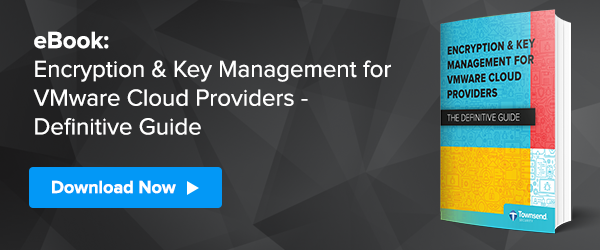
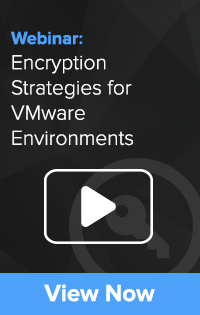 Manager through their partnership with Coalfire, and then achieved certified status of our key manager with VMware encrypted VMs and vSAN. Now we are working towards an enhanced marketplace presence where our customers can actually purchase our key manager through the VMware marketplace portal.
Manager through their partnership with Coalfire, and then achieved certified status of our key manager with VMware encrypted VMs and vSAN. Now we are working towards an enhanced marketplace presence where our customers can actually purchase our key manager through the VMware marketplace portal.
